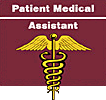 Return to the Home Page
Return to the Home Page
Everybody experiences stress. A certain amount is even good for you. Too much stress can damage your physical, emotional, and mental health. Since it is not always possible to prevent stress, we all need to learn how to reduce it. Choose among the following techniques what you think will work best for you. Make them part of your everyday life.
1. PREVENT IT. How much stress do you cause just by putting unnecessary pressure on yourself? Do you over react to little things that annoy you? Every time you let anger or frustration take control, it drains away good energy and sidetracks you from more important things. Obviously, you can't always control what goes on around you, but you can control how you respond. Try a little more patience next time you get caught in traffic and you'll avoid unnecessary stress.
2. SET GOALS. Some people drift through life going from crisis to crisis letting stress build up. If you set goals, you can take better control of your life. Think where you'd like to be in 1 year or 5 years. Be realistic by starting with small, daily goals, then build up from there. Re-evaluate your goals from time to time and be prepared to adjust them as changes occur in your life.
3. ESTABLISH PRIORITIES. Do you often feel rushed because "there's no time"? Why not regulate the pace of your life? Plan ahead. Make a list of tasks in order of priority. Concentrate on what's really important to you and drop those things that only waste your energy.
4. TAKE TIME OUT. Spend a few minutes alone each day to break the routine. This helps ease stress and gives you a better perspective of what's around you. Set aside time during the week for recreation, hobbies, or exercise. Regular exercise is an excellent way to reduce stress. Physical fitness gives you a feeling of well-being by relieving tension and increasing productivity.
5. HAVE FAITH. Peace of mind comes to those who trust in God's power to lessen life's burdens through prayer.
6. THINK POSITIVELY. Having a positive attitude will help you assert yourself and feel more in control. You waste energy if you constantly criticize yourself or set unrealistic goals. Negative thoughts generally produce negative results. Instead of saying, "I can't," practice saying, "I can." You'll be surprised how much more you can accomplish.
7. HAVE A SENSE OF HUMOR. Laughter can be one of the best medicines for stress. Being able to laugh at yourself and the world can break tension and give you some relief from stress.
8. COMMUNICATE. Suffering in silence only increases the stress you build up inside. Talk over your feelings and concerns with your family, a friend, counselor, preacher, or health professional. "Thinking out loud" like this not only relieves stress, but may also shed new light on your problems. Learn to listen and consider suggestions with an open mind.
9. MAKE DECISIONS. Most people have no idea how much stress they create for themselves by resisting change. They wait, hoping a situation will go back to the way it was. Why wait when you have choices and could make a decision? When it's time to change old habits and move forward, make your own change for the better.
10. GET SUPPORT. Do you sometimes find problems too personal to
discuss? Or feel they may be too much of a burden on others? Find a support
group in your community. Remember, you're not alone. Other people with similar
problems understand what you're going through without the need for lengthy
explanations. They share your concerns and they want to learn how to cope
with stress, too.
CONTACT YOUR DOCTOR FOR ANY OF THE FOLLOWING:
1. You have trouble concentrating to complete work or studies.
2.
You have a significant change in your appetite, sleep, or sex drive.
3.
You suffer from uncontrollable crying spells.
4. You have uncontrollable
thoughts of harming yourself.
5. You have severe mood swings.
